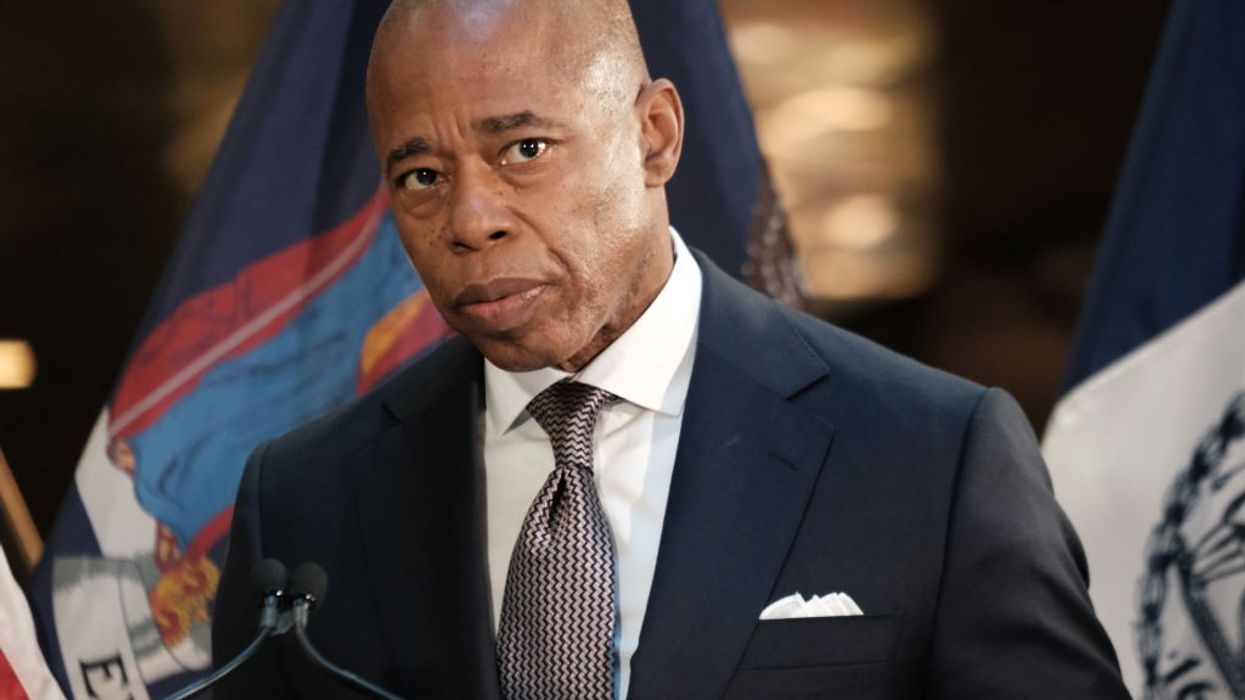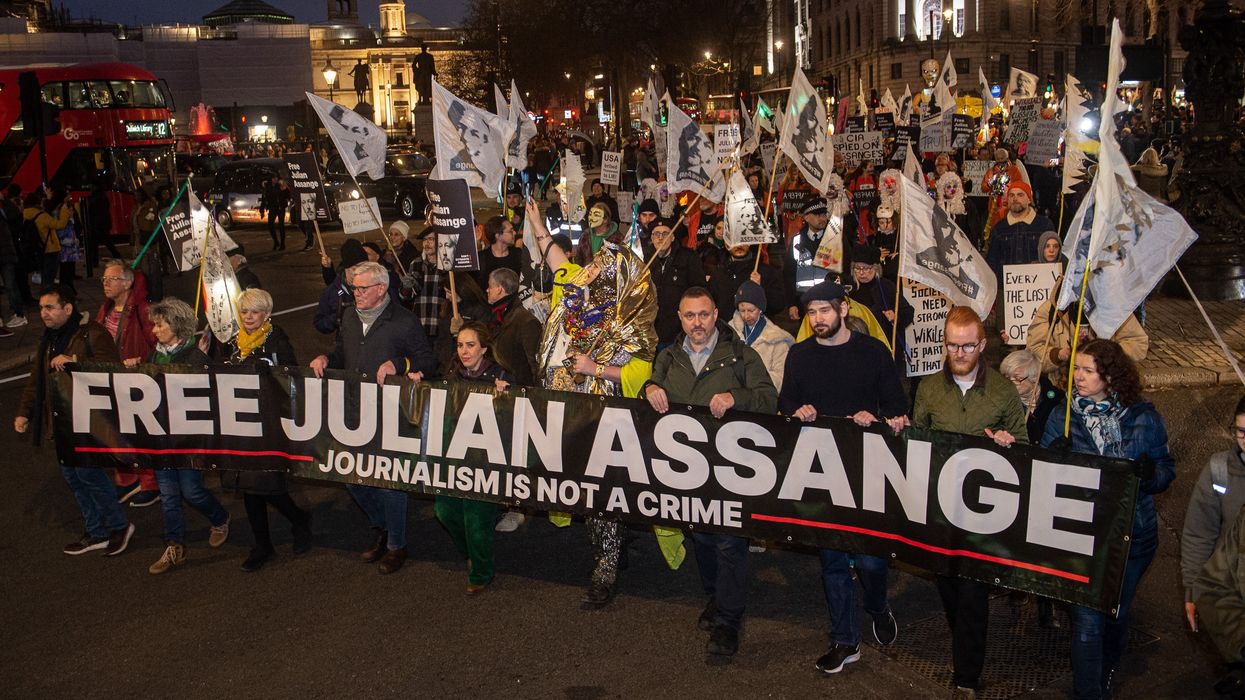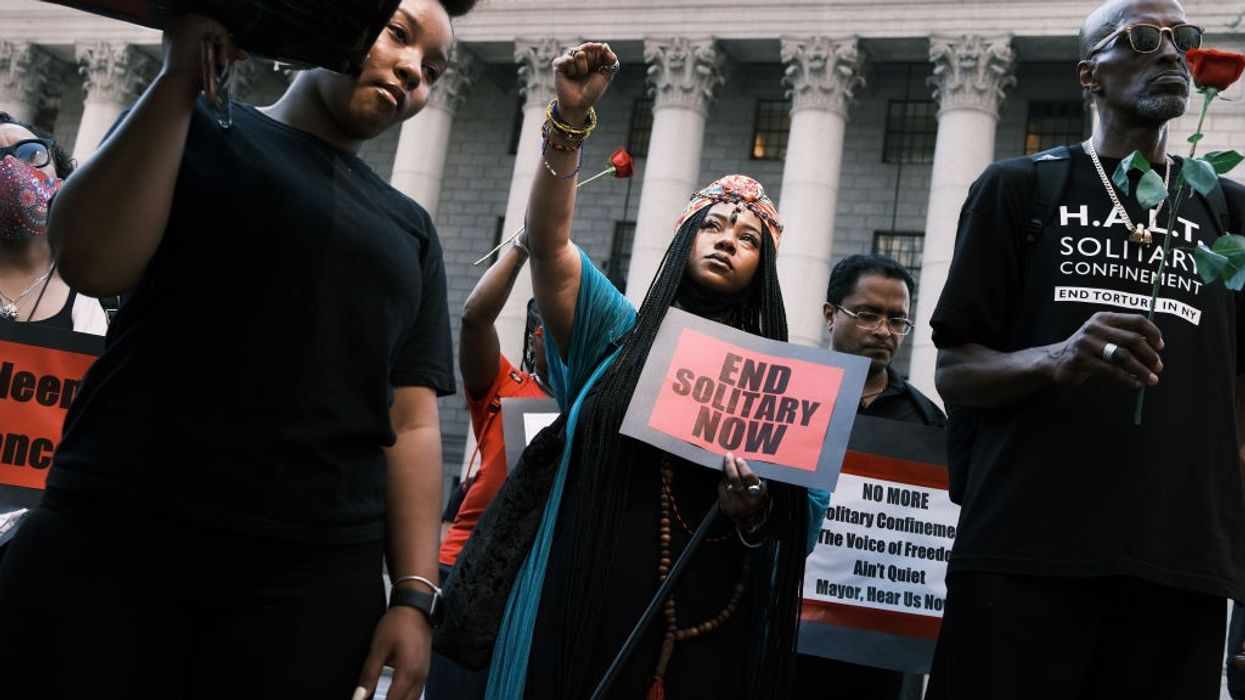'Wrong Side of History': NYC Mayor Adams Vetoes Solitary Confinement Ban
"With this veto, the mayor has condemned New Yorkers to suffer in solitary confinement and isolation, and he did so after the cameras were turned off and backs were turned," the bill's sponsor said.
New York City Mayor Eric Adams vetoed a New York City Council bill on Friday that would have banned the practice of solitary confinement in city jails.
Also on Friday, Adams vetoed another bill that would have increased transparency and oversight of the New York Police Department (NYPD). However, both bills passed the council with more votes than is required to override a veto.
"To recap: Police transparency is good. Solitary confinement is bad. And Mayor Adams is committed to manufacturing controversy where there is none," Brooklyn Borough President Antonio Reynoso wrote on social media in response to the news. "The Mayor shouldn't be spending time sowing dissent on veto-proof bills that will pass regardless of his actions today."
"Solitary confinement is torture. It often results in lasting psychological damage, and undermines public safety both inside and outside New York City's jails."
Solitary confinement is an increasingly controversial practice that has been recognized as torture by the United Nations and human rights groups if it lasts for more than 15 days in a row, according to the New York Civil Liberties Union. Its use at New York's Rikers Island has been linked to at least two recent deaths: Layleen Polanco Xtravaganza, who died after having a seizure while in solitary in 2019 and Kalief Browder, who took his own life after being placed in solitary confinement for two years.
"Solitary confinement is inhumane, and its presence in our city is indefensible," Public Advocate Jumaane Williams, who sponsored the legislation, said ahead of its passage last month. "Committing an infraction in jail can cause you to lose privileges, not basic human rights. People in solitary are isolated, denied human contact and connection, denied support, and come out of these deplorable conditions worse than when they went in—and some don't come out at all."
The bill, 549A, would have required that everyone in jail in New York City be allowed to gather with other inmates for at least 14 hours every day, except during emergency lock-ins or to deescalate conflict, ABC News reported. In those cases, inmates could only be confined for up to four hours.
Adams announced the veto by press release, and not during an earlier press conference when he announced his veto of the police transparency measure, as New York Magazine reported.
"Our administration does not support solitary confinement in our jails, and New York City has not used the practice for years. In fact, we have achieved significant reductions in key indicators of violence in our correction system without solitary confinement," Adams said in a statement. "But despite the misleading nickname, had [the bill] taken effect, the Department of Correction would no longer be able to protect people in custody, or the union workers charged with their safety, from violent individuals. I implore the City Council to work with our administration and follow the federal monitor's guidance to abandon this misguided bill."
Williams criticized the mayor's decision.
"With this veto, the mayor has condemned New Yorkers to suffer in solitary confinement and isolation, and he did so after the cameras were turned off and backs were turned. It's cowardly, weak, shameful, and entirely expected from this version of this mayor," Williams said in a statement.
"I don't think there's a single person in the city outside the mayor's office who thinks the status quo on Rikers right now is good and effective," Williams continued. "The ongoing use of solitary confinement and isolation in New York City—no matter what the administration calls it—is indefensible, and vetoing the ban is inexcusable."
Other city council members and rights groups spoke out against the mayor's action.
Speaker Adrienne Adams and Criminal Justice Chair Sandy Nurse promised to "take the steps to enact this law over the Mayor's veto." The measure passed 39-7, and an override requires 34 votes.
"The Council passed Intro. 549-A to ban solitary confinement with more than a veto-proof majority because it is imperative to make the city's jails safer for those who are detained and staff alike," Adams and Nurse said. "We cannot allow the human rights and safety crisis on Rikers to continue by maintaining the status quo of failed policies and practices."
The #HALTsolitary Campaign thanked Adams and Nurse for promising to override the mayor's veto.
"He's on the wrong side of history, human rights, and public safety," the group, which is led by impacted New Yorkers, posted on social media.
The NYCL also encouraged the city council to pass the legislation.
"Solitary confinement is torture," the group wrote on social media. "It often results in lasting psychological damage, and undermines public safety both inside and outside New York City's jails."
Council members and rights groups also criticized Adams' veto of the NYPD transparency measure—5862A or the "How Many Stops Act,"—which passed by a 35-9 margin.
"The Mayor's veto betrays his stated goal of public safety and harms the Black and Latino communities that bear the brunt of these stops."
This bill would have mandated that New York police officers report on civilian stops and searchers and give more detailed information about vehicle stops and searchers, ABC News explained.
In justifying his veto, Adams said that while the legislation "has good intentions behind it, the bill is misguided and compromises our public safety."
"Our administration supports efforts to make law enforcement more transparent, more just, and more accountable, but this bill will handcuff our police by drowning officers in unnecessary paperwork that will saddle taxpayers with tens of millions of dollars in additional NYPD overtime each year, while simultaneously taking officers away from policing our streets and engaging with the community," he said.
In response, Council Speaker Adams said the council was "prepared to override this veto," issuing a joint statement with Public Safety Chair Yusef Salaam.
"The false narrative that we cannot have transparency is bad for our city, and belies the fact that accountability is vital to improving public safety by increasing trust," Adams and Salaam said. "The Mayor's veto betrays his stated goal of public safety and harms the Black and Latino communities that bear the brunt of these stops."
The NYCLU wrote on social media: "The mayor's veto leaves another stain on an administration that has been winding back checks on hyper-aggressive, biased, and unaccountable policing. We are confident the city council will heed the call of impacted New Yorkers and advocates and override the Mayor's veto."


